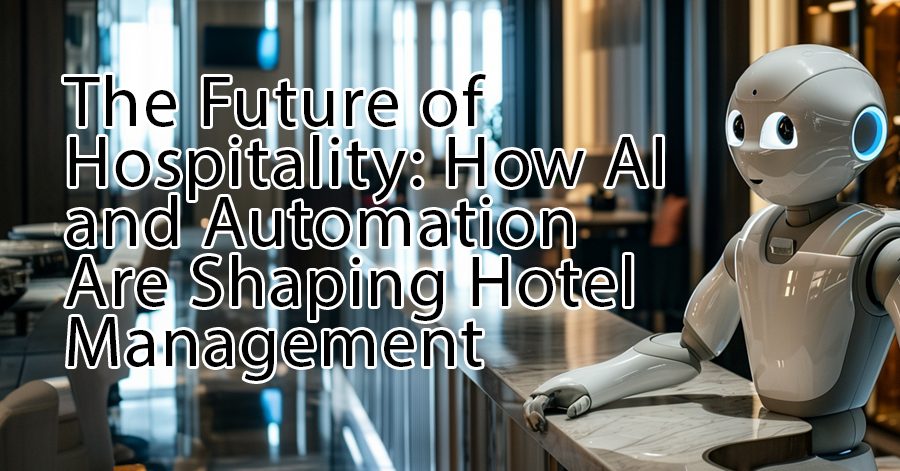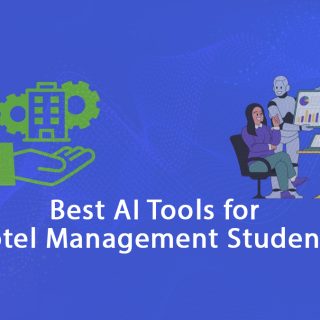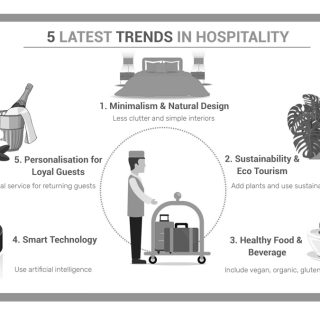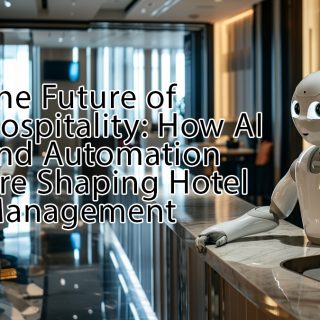Enhancing Staff Experience
When repetitive and time-consuming tasks are automated, hotel staff can focus on more meaningful and guest-centric responsibilities. Instead of spending hours on manual check-ins or inventory logging, staff can now engage personally with guests, providing tailored services and memorable experiences. This shift not only boosts employee satisfaction but also increases overall efficiency and service quality.
How AI is Transforming Guest Experience
Personalised Guest Recommendations
AI algorithms analyse data from previous stays, preferences, and even social media behaviour to provide hyper-personalised suggestions. From room selection to food preferences and activity recommendations, AI creates a tailor-made experience for every guest—almost like having a personal concierge in your pocket.
Voice-Activated Services
With AI-powered virtual assistants like Alexa for Hospitality or Google Nest, guests can control lighting, temperature, music, and even order room service using just their voice. This convenience adds a futuristic charm to hotel stays and enhances accessibility for guests of all ages.
Chatbots and 24/7 Customer Service
Gone are the days when guests had to wait for reception to pick up the phone. AI-driven chatbots now handle bookings, queries, complaints, and more—instantly and at any time of day. These bots can handle multiple languages, remember guest preferences, and escalate issues to human staff when necessary.
AI in Revenue Management
Dynamic Pricing Models
AI tools assess market trends, local events, competitor pricing, and past booking behaviour to optimise room rates in real time. This helps hotels maximise occupancy while also ensuring they aren’t leaving money on the table.
Demand Forecasting
Using machine learning algorithms, hotel managers can predict peak seasons, understand booking patterns, and prepare staff and inventory accordingly. This leads to better planning and cost management.
Streamlining Operations with Automation
Smart Inventory Management
AI systems can monitor stock levels, predict future needs based on usage patterns, and even place automated orders. This prevents overstocking or running out of essentials like linen, toiletries, or kitchen supplies.
Automated Housekeeping Schedules
With occupancy data and guest behaviour insights, automation tools create smart cleaning schedules, ensuring that rooms are cleaned efficiently without disturbing the guests.
Robots in the Hotel Industry
Robotic Concierge and Room Service
Many forward-thinking hotels are experimenting with robots that greet guests, deliver luggage, or bring room service. These robots are equipped with facial recognition and can even hold basic conversations, making the stay memorable and unique.
Sanitisation and Cleaning Robots
Post-pandemic, cleanliness is a top priority. Robots using UV light or automated vacuum systems are now helping maintain hygiene standards without the need for additional human resources.
Data Analytics and Guest Feedback
Real-time Feedback Analysis
AI tools scan reviews, feedback forms, and social media mentions to gauge guest satisfaction levels. This real-time insight helps hotel management take immediate corrective actions and maintain high service standards.
Predictive Analytics for Future Trends
By analysing historical data and customer trends, predictive analytics helps hotels understand what their future guests might want—enabling them to stay one step ahead.
Challenges and Ethical Considerations
Data Privacy Concerns
Collecting and using guest data responsibly is crucial. Hotels must be transparent about what data they collect and how it’s used to maintain trust and avoid legal issues.
Job Displacement
One of the biggest fears is that automation might replace human jobs. While AI does streamline many tasks, the human touch remains irreplaceable in the hospitality industry. Retraining and reskilling staff is the way forward.
The Balance Between Technology and Human Touch
While AI and automation offer efficiency and innovation, the essence of hospitality lies in human warmth and connection. The key is to use technology to enhance—not replace—the guest experience. Imagine AI as the backstage crew making sure everything runs smoothly, while the human staff delivers the show.
Conclusion
The future of hospitality is here, and it’s intelligent, efficient, and personalised. With AI and automation stepping into hotel management, the industry is undergoing a revolutionary transformation. From smarter operations and dynamic pricing to personalised guest experiences and robotic assistants, the possibilities are endless. Yet, the soul of hospitality will always remain human. Embracing technology while holding onto empathy is what will set the leading hotels apart in this new era.
FAQs
Q1. Will AI replace humans in hotels completely?
No, AI will automate repetitive tasks, but human empathy and interaction remain irreplaceable in hospitality.
Q2. Is it expensive for small hotels to adopt AI and automation?
Not necessarily. Many scalable solutions are available today, even for budget and mid-range hotels.
Q3. How is guest privacy protected in AI-driven hotels?
Hotels must comply with data protection laws like GDPR and ensure transparent data usage policies.
Q4. Are robots really used in hotels today?
Yes! Hotels in Japan, the US, and even India have started using robots for concierge services, cleaning, and room delivery.
Q5. What are the long-term benefits of automation in hotels?
Automation boosts efficiency, reduces errors, improves guest experience, and ultimately leads to better revenue and brand loyalty.




